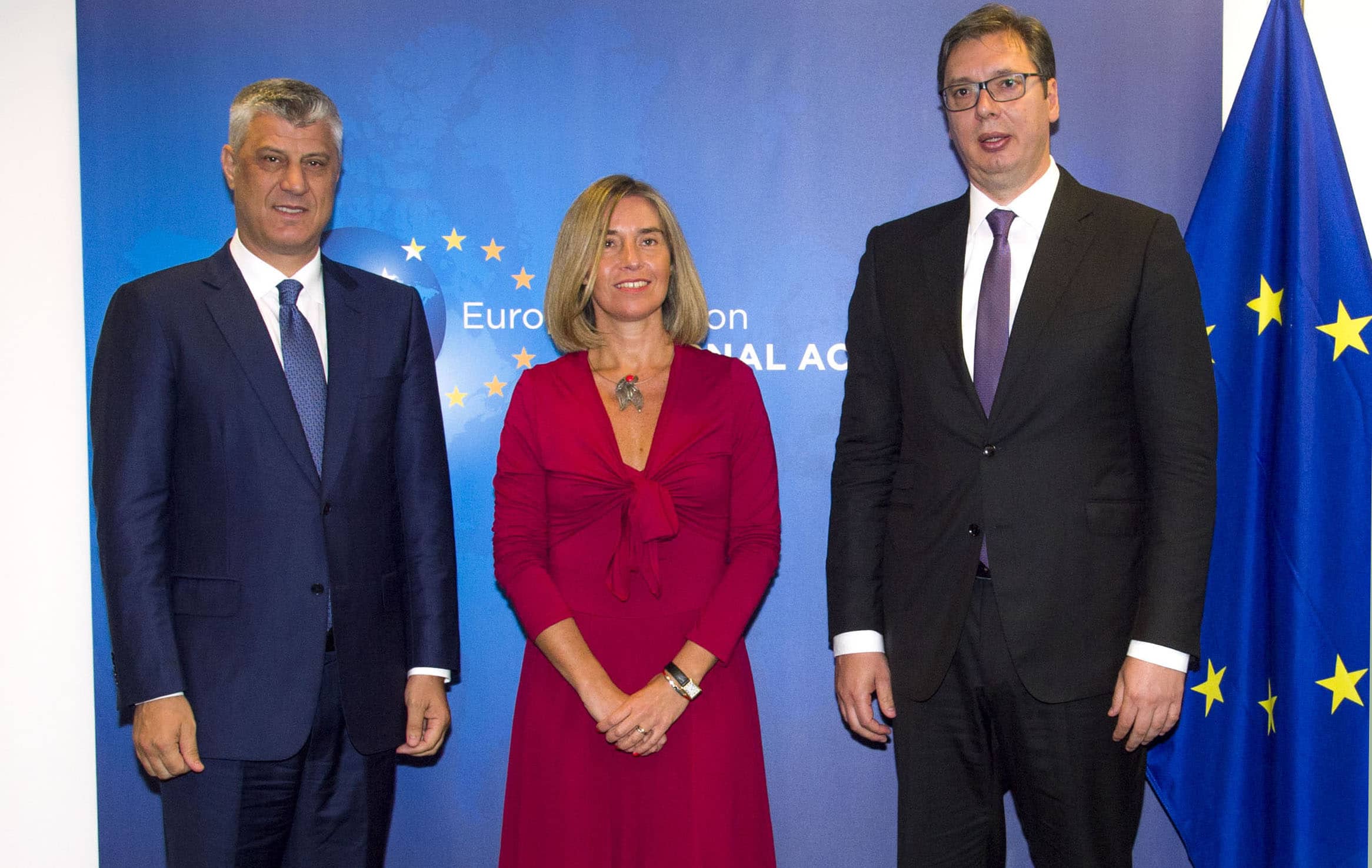On Wednesday 21 of November Kosovo was denied access to Interpol. 51 countries voted against Kosovo’s membership, 68 were in favor and 16 countries abstained from voting. It is the third time Kosovo is denied accession. Kosovo already applied for membership in 2015 and 2016. Ramush Haradinaj claims that the denial this year is due to successful campaigning by Serbia.
A day after , the rejection, Kosovo Prime Minister, Ramush Haradinaj, announced that taxes on import goods from Serbia and Bosnia-Herzegovina will rise from 10% to 100%. The earlier announced 10% was reaction to what Kosovo considers bad behavior of Serbia and Bosnia towards it. Haradinaj called the attitude of Serbia and Bosnia towards Kosovo hostile and the imposition of 10% tariff was the consequence.
Dialogue
Dialogue between Belgrade and Pristina intensified this year. Since the summer the two Presidents, Aleksandar Vučić (Serbia) and Hashim Thaçi (Kosovo), met regularly mostly under supervision of the EU. However, the two countries had already started talking in 2011 in order to normalize their relationship. A normalization is necessary for accession to the EU.
In August this year it was speculated that the two countries would come to an agreement in a planned meeting in September. The deal would consist of a so-called land swap, or border-correction. The speculation alone led to a heated discussion about the possible consequences of changing borders on ethnic basis. The opposition in Kosovo made it clear that they are against any kind of border correction which has weakened Thaçi’s mandate to negotiate. In Serbia a survey showed that the majority of the Serbs support the ongoing talks with Kosovo. However, the land-swap is not supported by the majority. Early September everyone was still hopeful about a possible deal between the countries and now a deal seems further away than before.
Reaction
The EU foreign policy chief, Federica Mogherini, urged Kosovo to revoke the decision of the import tariff because it is a violation of the Central European Free Trade Agreement (CEFTA) of which Kosovo, Serbia, Bosnia, Macedonia, Montenegro, Albania and Moldova are part. CEFTA is considered a preparation for the countries for a future EU membership by establishing free trade areas. Kosovo is now violating this treaty. Federica Mogherni was backed by Johannes Hanh, the EU Commissioner for Neighborhood Policy and Enlargement Negotiations, who highlighted the negative consequences for Kosovars stemming from decreased trade with its neighbours.
Serbian Trade Minister Rasim Ljajic said that as a reaction to the violation Serbia will not take part in the scheduled CEFTA meetings in November and December, but Vucic already declared that Serbia is not going to impose counter-measures because he claims that Serbia is a reliable partner and is not going to violate the CEFTA treaty. However, the Serbian media is furious and the newspapers close to the ruling party of Vučić called the action a possible start of an armed conflict. Meanwhile, the Kosovo newspapers support the decision and call it a deserved consequence of blocking Kosovo’s membership of Interpol.
Consequences
Kosovo’s Trade and Industry Ministry confirmed that imports from Serbia and Bosnia already decreased by 50% since the 10% tariff was imposed but at the same time also declared that the measures will be kept in place and might even be increased. Serbian trade (from January till September 2018) with Kosovo was worth €329.9 million. Bosnia’s export to Kosovo was worth about €80 million while Kosovo only imported goods from Bosnia worth €8 million. Kosovo is an important trade partner for Serbia and Bosnia, but the tariffs also have consequences for Kosovars. For instance, companies in Kosovo who buy their materials from Serbia and Bosnia will suffer from the increased prices and as a consequence prices can increase for the Kosovars. Moreover, this tariff war damages the political dialogue between Belgrade and Pristina. Serbian President Aleksandar Vucic announced that the dialogue will not continue until the measures have been reversed. In the summer the international community was hopeful about a possible agreement between Serbia and Kosovo, that hope has faded for the time being, but the EU will continue its role as mediator.
Sources: Balkan Insight, Balkan Insight II, Balkan Insight III, B92, N1
Photo: Flickr



